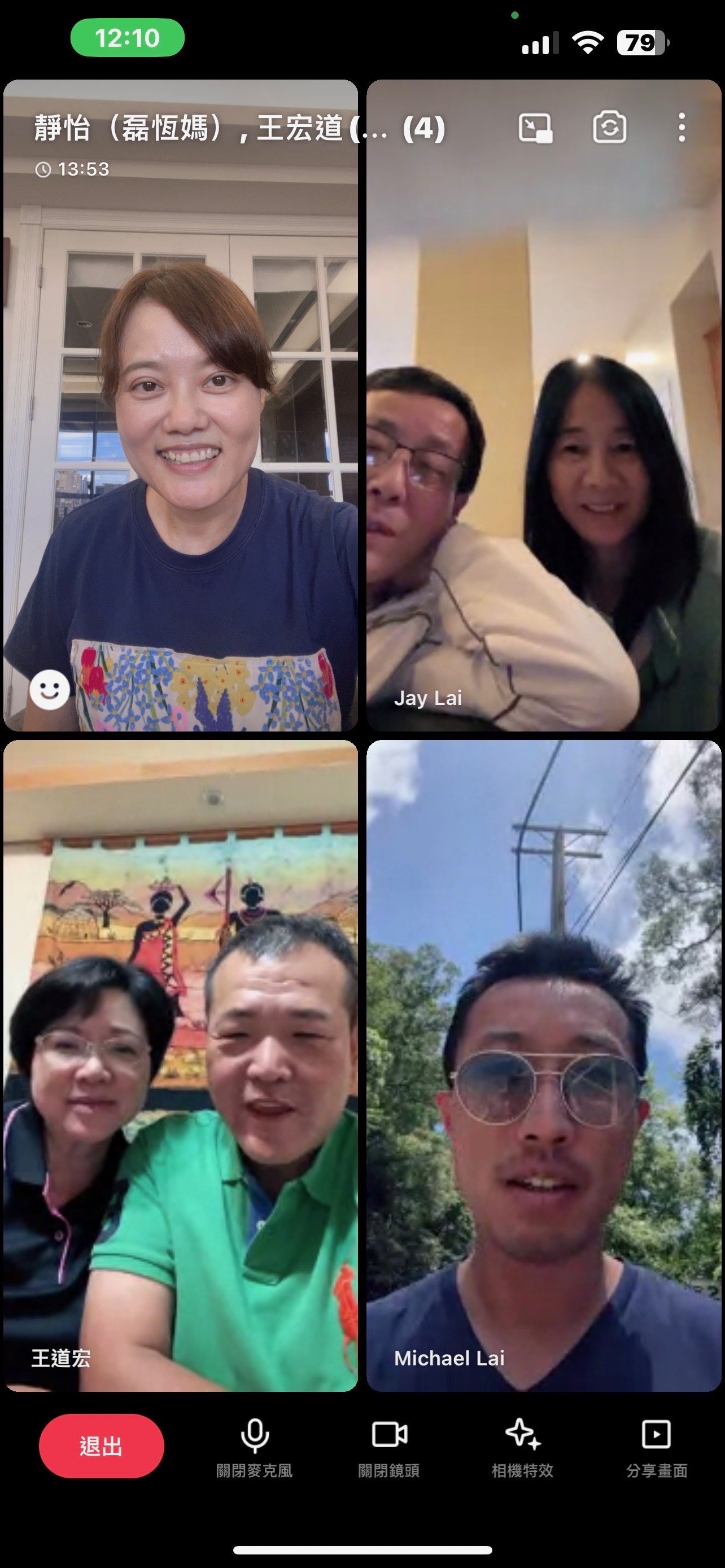yuan fen — taiwan’s role in my family story
A week ago, I flew to Taipei, Taiwan for the first time with friends on vacation.
The first couple of days were magical. From traversing bustling night markets speaking Mandarin, to walking around seeing attractive models of Chinese descent on billboards, to accompanying my American friends sampling foods I ate growing up (酒酿汤圆 (jiu niang tang yuan), 豆浆油条 (dou jiang you tiao)), I felt deeply at home.
at Linjiang Night Market with the homies
Little did I know this trip would challenge what home meant.
A couple of days in, I vaguely recalled an old memory about a deceased relative who lived in Taiwan and helped my dad immigrate to the US. I remember we called him 大舅 (da jiu).
I texted my family groupchat — “wait a second, do we still have relatives in Taiwan?” Turns out, 大舅 passed 18 years ago in 2005, but he left behind a son and daughter, my 表叔 (biao shu) and 表姑 (biao gu). The last time my dad had been in touch was 2005, when they traded emails around 大舅’s death. Somehow, my dad found an old telephone number from an email, and he called.
The next day I found myself on a group Line video call with my long lost relatives, and we scheduled to meet up the next day in Taipei over mala hotpot!
The power of modern tech
Family reunion after 18 years over mala hotpot in Taipei
I learned that when I was just a few years old, my 表叔 and 表姑 visited our family in the US, but I didn’t have any memory of this. My 表叔 is a retired colonel in the Taiwanese army, and my 表姑 is a stay-at-home mom raising two kids. They looked intently at me, marveling at how much I had grown from the little boy they met. Both were incredibly warm and generous and I feel immensely grateful they hosted me and treated me with such love after meeting me only once.
Over boiling beef and cabbage, I asked: “What kind of person was 大舅?”
“Well,” started my 表叔, “he was a very generous man…”
…In the process I pieced a picture of da jiu’s life, and his impact on my nuclear family.
大舅, the older brother of my paternal grandmother, was animated by rage and patriotism during the Japanese occupation of China during World War II (1939 - 1945). Following in the footsteps of his brother-in-law from the same hometown of Jingxian (where both my parents and I were born), he joined the Nationalist Army. After the Japanese surrender in 1945, he fought in the subsequent civil war between the Communists and Nationalists on Hainan Island, and then left to Taiwan with the Nationalist Army, separating from his family.
大舅 was a devoted man whose decorated military career earned him a medal, and he later went into civil service assisting with Taiwan’s economic miracle, in HR and at a local pharma factory in Taipei. When China re-opened to Taiwan in 1987, he went back to visit Jingxian to his mother, who he hadn’t seen in 40 years. At this point, the white terror had raged in Taiwan for decades, intertwining with its meteoric economic rise. Da jiu was part of a generation of old soldiers who were separated from their families on Mainland China for decades, and were finally re-uniting. All politics is local, and all history is personal.
China was just beginning its economic miracle under Deng Xiaoping, and was still desperately poor. When Da Jiu drove in car to Jingxian in China, the roads were unpaved, and villagers surrounded the car gawking, because cars were so rare. He came back and brought money, and brought a water heater for his sister, my grandmother; one she still uses to this day 35 years later.
Without Da Jiu, my dad would not have been able to go to the United States. Da Jiu paid the air fare for my dad to fly to the US, and gave him a couple hundred US dollars, a fortune in then China. More importantly, he co-signed my dad’s Visa. At that time, a US visa from China needed an Affidavit of Financial Support (Form I-134); Da Jiu found a distant relative who immigrated from Taiwan to the US to sign for my dad.
Without Da Jiu, would I have grown up instead in Canada, New Zealand, or another country where members of the Chinese diaspora who couldn’t get US visas landed? Would my parents have stayed in China (in which case my sister wouldn’t have been born because of the one child policy)? How would our lives be different?
Seven days ago, my story was: “born in China, raised in America.”
Now, my story is: “born in China, raised in America, with family in Taiwan.”
There is a phrase in Chinese, 緣份 (yuan fen) which translates to providence, or a destiny that brings people together. It was 緣份 that Da Jiu was able to help my father come to the US; 緣份 that I was able to meet back up with our Taiwanese family after 18 years out of touch.
The first character of yuan fen, 緣 (yuan) sounds exactly like 圆 (yuan), which means circle. This trip was not only luck, but the completion of an identity & family circle.


